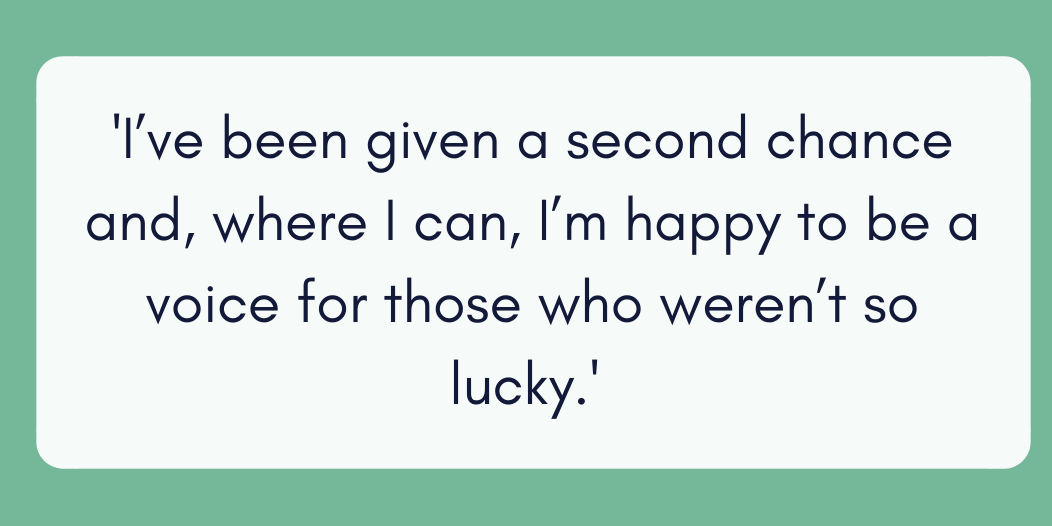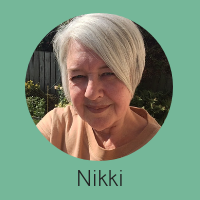timer 8 mins
Think
favorite 247
After Pancreatic Cancer
 So, what’s life like after pancreatic cancer?
So, what’s life like after pancreatic cancer?
Unfortunately, not many of us know. Survival rates still sit at an appalling 7%. It’s barely improved in over forty years. But two years after my Whipples operation (google it if you have a strong stomach), I’m still here, albeit a little less of me.
I feel extremely lucky to have survived. Most people are diagnosed too late when the cancer is too advanced to be treated. As far as struggles go, I’ve been very lucky there too, at least physically. The surgery was massive and took over a year to recover from, and I took chemo on top of that. But I just gritted my teeth and got on with it. I never considered I wouldn’t get better.
Physical Consequences

I do get tired more quickly than I used to, but as a woman in my mid-fifties not long through menopause with a busy working and social life that’s not really a surprise! I have to take a pancreatic enzyme replacement called Creon for life now (as does anyone who comes through this cancer) as it helps me digest food and break down fats. The part of my pancreas that produced those enzymes has been removed.
Anytime you eat, you have to take between two to ten capsules – forgetting to take them means food isn’t digested properly which can cause bloating, pain and bowel issues. They are a porcine by-product (there’s no suitable vegetarian or synthetic substitute) so some people struggle with that. But they’re so vital to our ongoing health that Jewish and Muslim patients have special religious dispensation to take them. I’m very good at forgetting them despite having bottles of them in all my bags, on my desk, everywhere!
I also occasionally suffer from what’s called ‘dumping syndrome’ where food goes too fast through the shortened upper digestive tract (this is quite common after gastric surgery, especially if part of the stomach has been removed). It can cause a variety of symptoms such as sudden fatigue, nausea, weakness, pain, diarrhoea etc. It goes after about 20 minutes but it’s annoying. You just have to rest until it passes although sometimes I power through if I have to. I also have to watch out for any signs of diabetes which many Whipplers go on to develop… but so far so good.
Psychological Consequences
I’m not sure I’ve fully recovered mentally. I definitely feel I’ve changed in a way I find hard to put my finger on. I certainly don’t like wasting time or worrying about silly things anymore. And I’ve had to let a couple of friends go (one of over 50 years) which has been sad and liberating at the same time.
Things I find useful to keep me happy and healthy both physically and mentally are:
- a good diet, without being OTT (treats are important!)
- exercise (I do yoga, Pilates and ballet barre once each a week plus lots of walking and gardening)
- spending time with my husband and friends
- spending a lot of time working at a wolf centre(!)
- awareness work in parliament
My rather unusual hobby is helping to look after ten hand-raised North American grey wolves. They’re getting pretty elderly now, but I spent a lot of time with them during my recovery and they are a source of great comfort and pleasure for me. 
While I did all this stuff before I had cancer, now I focus on the things that make me happy and don’t dwell on anything that doesn’t.
I’ve just been to visit my family in New Zealand which was wonderful as they had to see me go through all this from the other side of the world. I actively discouraged any of them from coming over as I was determined not to die!
I’ve also done some awareness work with Pancreatic Cancer UK which culminated in me speaking before a parliamentary committee in the Houses of Parliament to help support a report on recommendations to help earlier diagnosis of pancreatic cancer. I’ve been given a second chance and where I can, I’m happy to be a voice for those who weren’t so lucky.
Support from others
It’s comforting to talk to others who’ve been through the same thing and occasionally you come across people whose experience closely mirrors yours which is great. I’ve found the Whipple Warriors Facebook group and the reassurance it provides marvellous if you have a wobble. Sometimes you just need a virtual hug or handhold. I’d say to anyone affected by pancreatic cancer, either as a patient or the carer, seek them out. They are an invaluable resource and a friendly bunch too.
And often, the combined knowledge of other survivors can help inform our GPs, as many are unfamiliar with pancreatic cancer survivors. I’m lucky to have a brilliant GP who’s had personal experience of it with their mother-in-law.
Fear
I don’t know about other cancers or even other pancreatic cancer patients but according to my oncologist, pancreatic cancer has such a high recurrence rate (65-70% even with mop-up chemo) that it’s never considered in remission. It usually recurs between six months to two years after the Whipple but can come back any time really.
I met one person online who I really clicked with – we were the same age, same stupid sense of humour. We’d had our cancer and ops at virtually the same time. She was a Canadian who lived in Florida and we were planning to meet up. Sadly, her cancer came back with a vengeance last summer and she died. I miss her terribly.
So for me, the one big thing I’m learning to deal with is the fear of the cancer coming back – it’s something that sits at the back of my mind all the time. If I feel a bit off, or have an unusual twinge it surges forward.
It doesn’t help that the aftercare from my hospital is a bit hit and miss – my upcoming four monthly check-up was forgotten. As my medical team are massively overstretched and understaffed, I’ve had to chase for an appointment.
So... what now? 
Those of us who have survived this vicious and usually fatal cancer are anomalies. At our check-ups, the doctors look at us baffled.
In the Whipple Warriors time after time we share stories of indifferent aftercare, a general puzzlement over what to do with us, a sense of ‘go away and get on with it.”
I’m sure many people who have got through cancer feel the same. I understand that doctors need to treat the sick but the need for care and reassurance doesn’t end on the day of your last treatment. The Whipple can leave patients with many ongoing issues but while our cancer has gone, our physical and, often, mental needs haven’t.
So, while I appreciate I’ve been very lucky and recovered extremely well, there still needs to be more emphasis on a holistic approach to aftercare, for all cancer patients.
 I’m Nikki and originally from New Zealand and emigrated to the UK in 1990 when I was 25. I live in Reading and work as a graphic designer for children’s magazines in London. I’m married to Simon, my fabulous and supportive Welsh husband. No kids but we do have two hyperactive budgies!
I’m Nikki and originally from New Zealand and emigrated to the UK in 1990 when I was 25. I live in Reading and work as a graphic designer for children’s magazines in London. I’m married to Simon, my fabulous and supportive Welsh husband. No kids but we do have two hyperactive budgies!
I had a pancreatic adenocarcinoma which accounts for about 85% of cases. Like many cases, it took a long time to diagnose - nine months of pain, illness, severe weight loss and innumerable tests before I was finally hospitalised with jaundice and biliary sepsis and the tumour had grown big enough to wave at the radiologists on my emergency CT scan. Luckily the wonderful team at the Churchill in Oxford took a punt on me, seeing I was young (51) and fit, cancer notwithstanding, and I sailed through the op with no complications. My pathology was great, no cancer anywhere else but I opted for six months of “belt and braces” GemCap chemo as extra insurance and got through that OK too.

Really uplifting Nikki, you sound positive and very energetic and this will be positive message for those with pancreatic cancer. I do understand, life after cancer can be so different, and the worry of it returning- terrifying.
Good luck and stay well.
Brilliant Nikki. I lost a cousin to pancreatic cancer and I’m just about to have surgery for colon cancer and am getting quite worried. Your story has really given me a lift. Keep on living your life to the full. It’s all any of us can do.
Thank you for sharing, Nikki.
My mom is in treatment for pancreatic cancer right now. Thankfully, her cancer was caught early enough to have her tumor surgically removed (on the tail of her pancreas), but that is only because she had a CT scan for totally unrelated back pain, and the doctor noticed the tumor in her pancreas. There really should be tests for pancreatic cancer.
I myself am a breast cancer survivor, another cancer that is often not caught early enough due to dense breast tissue. My tumor was 5cm and didn't show up on a 3D mammogram! It was only discovered through self-exam.
I'm approaching my five-year survival date and am thankful to be a survivor. I look forward to the day when surviving cancer will be the norm.
Best wishes for a long and happy life!
Pagination